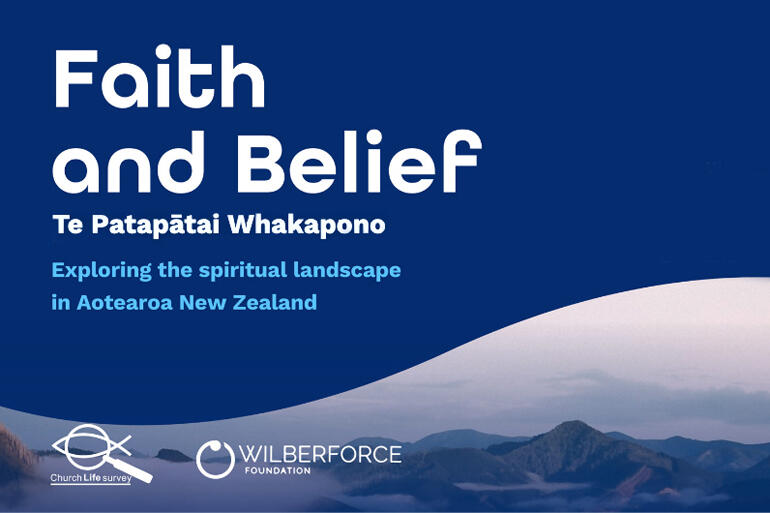
A new study on faith and belief in Aotearoa New Zealand has been released in a series of seminars across the motu this fortnight.
The 2023 Faith and Belief Study -Te Patapātai Whakapono has revealed that while church attendance and membership has changed little since the last survey in 2018, the majority of Aotearoa New Zealanders in its 1009 person sample are open to spirituality, value contributing to their communities and have a high opinion of Jesus.
The 2023 study reveals very similar positions to 2023, but its new filters offer previously uncollected information, particularly in the way that each generation views Christianity, Christians and the church.
Since the first Faith and Belief Study back in 2018, the Wilberforce Foundation and its partner Australian social research company McCrindle have broadened and sharpened the scope of their study questions and sample to include more demographic information by culture and generation (Z, Y, X and Boomer) and to weight the study more accurately by geographical population spread.
For the first time this year the Faith and Belief study was available to complete in both English and Te Reo Māori versions.
Jesus still ranks highly amongst the majority of New Zealanders* who see him as loving, caring, faithful and kind. The church also fares better than some commentators might expect, showing that 57% of people in Aotearoa New Zealand feel warmth toward the church and highly value churches’ work in feeding and housing people in need.
On the flipside, the report reveals the most common criticisms of Christians and Christians’ behaviour and demonstrates the differences in those perceptions across generations.
Churches and church leaders will also find significant insights in the section detailing the hopes and longings of people in Aotearoa New Zealand, which provide a rich source of reflection on how those hopes (as well as fears) might frame or speak into the mission of the church.
The top longings in life for all NZers in the sample were family and social wellbeing, good personal relationships and spiritual wellbeing. While the majority of NZers are happy with their whānau and friends, the survey found many experienced dissatisfaction with financial security, physical wellbeing and lacked a sense of community.
Another telling result came in the survey's section on mental wellbeing, where Boomers (b. 1945-64) were 62% satisfied with their mental wellbeing, compared to only 30% of Zoomers (b. 1996-2010).
Generation X come out as the least Christian and most closed to faith involvement, while Generation Y (Millenials) were the only generation that registered on the chart for likely to change their spiritual practice or allegiance as the result of good reasoning or argument.
In the section looking at where New Zealanders go to for spiritual resources, top billing were music and time spent in nature, followed by a glaring digital divide. Around 40% of Zoomers and 21% of Millenials in the survey encountered resources for spirituality on TikTok, compared to only 2% of Boomers, for example.
Despite its wide-ranging and improved data set, the producers of ‘Faith and Belief Te Patapātai Whakapono’ caution readers that with such a small sample, the study offers less of a guide to decision-making than a conversation starter to help faith communities think more about how their presence in communities can meet with the spiritual and social needs of people in Aotearoa New Zealand today.
The comprehensive ‘Faith and Belief Te Patapātai Whakapono’ report is available for download in PDF.
*Although not all study members had heard of Jesus.

















Comments
Log in or create a user account to comment.